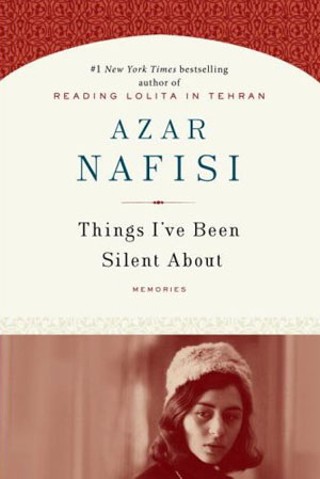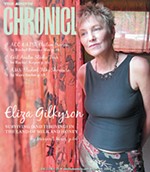Things I've Been Silent About: Memories
The Reading Lolita in Tehran author returns with a brave, even transgressive memoir
Reviewed by Belinda Acosta, Fri., Jan. 23, 2009

Things I've Been Silent About: Memories
by Azar NafisiRandom House, 368 pp., $27
Personal memoirs are curious animals. There's a certain amount of vanity that drives their creations, but the best of them provide some insight, not only into the writer but into the larger, shared human experience: the aspects of love, the scope of faith, the raw fervor of childhood, death, betrayal, and awakenings of all kinds.
Not only has Azar Nafisi written a memoir – the intriguing title borrowed from her diary – this is her second. Her first, 2003's Reading Lolita in Tehran, was an international bestseller and made her famous. That one mingled her story with those of her students in a study group that met to read and discuss banned books, including Nabokov's Lolita. But that memoir was much less personal than Things I've Been Silent About. Her new memoir is more intimately autobiographical, tracing her childhood in Iran to adulthood, her conflicted relationship with her mother, her deep devotion to her father (who instilled in her a love for literature), her eventual move to the States, multiple marriages, and motherhood – all set against the backdrop of her native Iran, pre- and post-revolution.
What one looks for in a memoir varies from reader to reader. Some may hunger for the deeply confessional, while others seek understanding of a world totally foreign to their own. Nafisi manages to satisfy both of these needs with extraordinary precision and clarity. In lesser hands, her work would be maudlin, sensational, or witheringly dry. The confessional aspects of her life – as in a passage where she describes sexual abuse by a family friend – are stunning but not luridly recounted, while her introduction to and ongoing tutorials on classic Persian literature by her beloved father are delightfully (though sparely) detailed. But Nafisi is not writing a history of Persian literature. She is, as the title suggests, speaking out. A woman – and more specifically, an Iranian woman – revealing intimate family details is not only transgressive; it's brave and ultimately necessary. For this, Nafisi takes her place among a long line of women memoirists who, by breaking longstanding compliance with communal censorship, have opened a world of possibilities for other women, the marginalized, and the previously silenced.
As part of the Harry Ransom Center Lecture series, Azar Nafisi will discuss her new book at the AT&T Conference Center Amphitheatre (1900 University Ave.) on March 12 at 7pm. Free and open to the public. For more info, visit www.hrc.utexas.edu.










